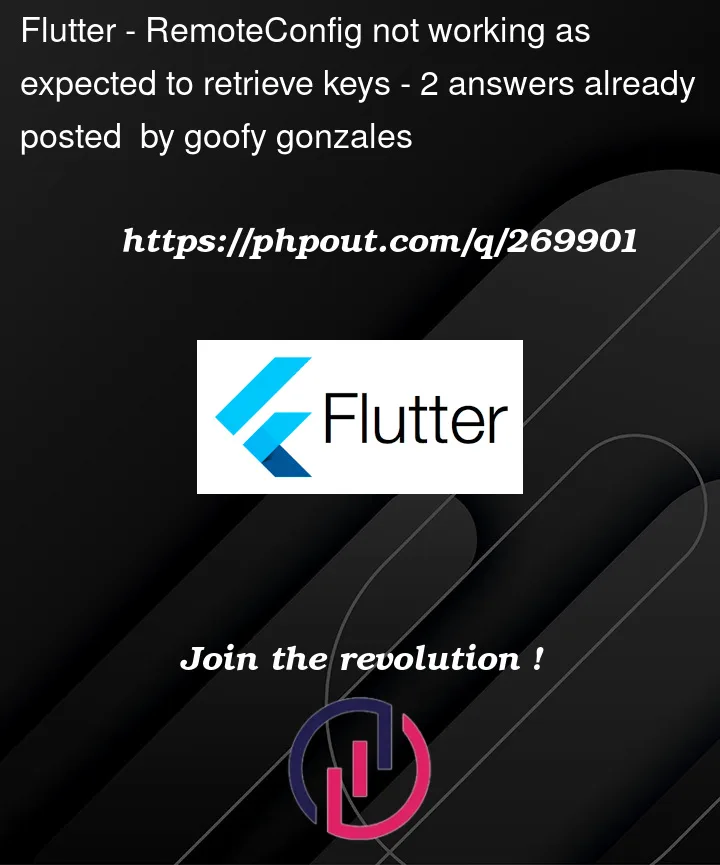I am a noob with Flutter/Dart/Firebase so I might be doing something obviously wrong:
class RemoteConfigService {
static final RemoteConfigService _singleton = RemoteConfigService._internal();
factory RemoteConfigService() {
return _singleton;
}
RemoteConfigService._internal();
final FirebaseRemoteConfig remoteConfig = FirebaseRemoteConfig.instance;
Future<void> initialize() async {
await remoteConfig.fetchAndActivate();
}
String get apiKey => remoteConfig.getString('apiKey');
}
Now I am trying to access apiKey in my main and it works as i see its value printed
Future<void> main() async {
WidgetsFlutterBinding.ensureInitialized();
await Firebase.initializeApp();
await RemoteConfigService().initialize();
String key = RemoteConfigService().apiKey;
print(key);
}
But when I try the same in view it doesn’t work?
class _TestViewState extends State<TestView> {
....
Future<String> makeApiCall() async {
String apiKey = RemoteConfigService().apiKey; //coming back as empty
}
}
If it’s already working in main() during init why not here. It’s a singleton class. Any workarounds?
Tried a bunch of things including initializing RemoteConfigService() inside the makeApiCall() method and still shows up as empty.




2
Answers
Not sure what is up but I manually uninstalled the app on my phone before running "flutter run" and it worked this time.
The issue you are facing might be related to the timing of the initialization of the RemoteConfigService. When you call
RemoteConfigService().initialize()in yourmain()method, it initiates the fetching and activation of remote configurations, but this process takes some time to complete. If you are trying to access theapiKeyimmediately after callingmakeApiCall(), the configurations might not have been fetched and activated yet, resulting in an empty value.To handle asynchronous operations like this, you can utilize FutureBuilder in your widget tree. FutureBuilder allows you to perform asynchronous operations and rebuild the widget tree when the operation is complete.
Here’s how you can modify your TestView class using FutureBuilder:
In this modified code, the
initialize()method of RemoteConfigService is called in theinitState()method, and theFutureBuilderwidget handles the asynchronous fetching of the API key. While the API key is being fetched and activated, a loading indicator is displayed. When the operation is complete, it displays the API key.Make sure to handle error cases appropriately in the
FutureBuilderas well, depending on your use case.By using
FutureBuilder, you ensure that the widget waits for the asynchronous operation to complete before trying to access the API key, preventing issues related to timing and asynchrony.